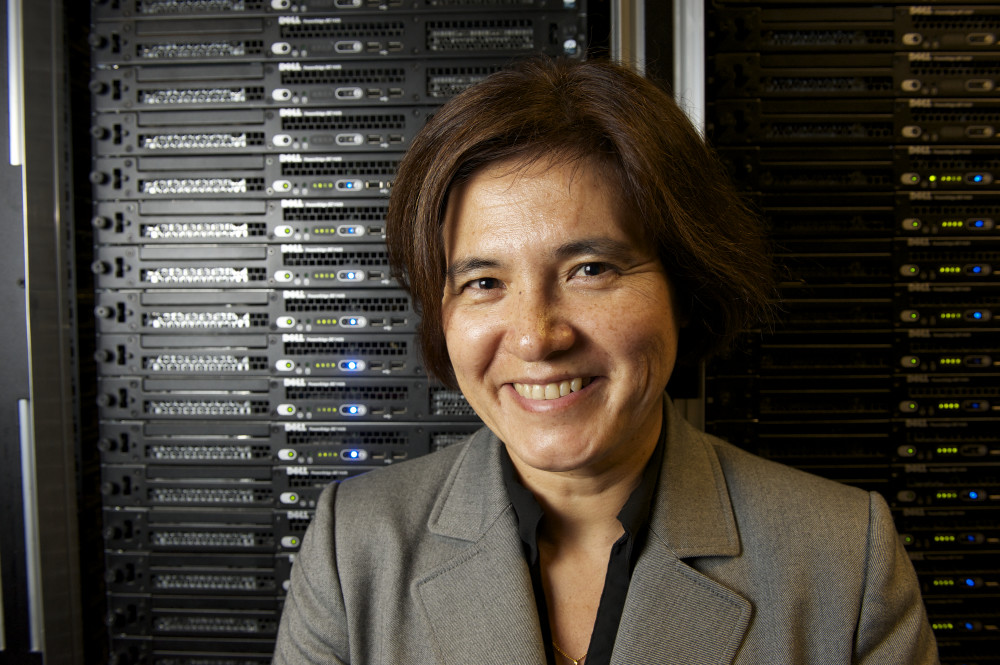Posted by Leah Burns, IT Communications Coordinator, UCOP. “Information is the basis of healthcare,” said Dr. Lucila Ohno-Machado, chair of the Department of Biomedical Informatics (DBMI) and associate dean for Informatics and Technology at UCSD. In her work, she combines expertise in medicine and computer science – she holds MD, MBA, and PhD degrees – and focuses on improving patient care through informatics.
In 2009, Ohno-Machado founded the DBMI, which designs, implements, and evaluates informatics algorithms and systems that serve biomedical researchers, other healthcare providers, and public health professionals. “It was an opportunity for me to create something from scratch,” she said. Prior to joining UCSD, she directed a combined Harvard and MIT informatics training program. “Unlike my experience at Harvard, UCSD didn’t have a pre-existing informatics emphasis. I was able to create the group and training program, get the research started and recruit for several positions.”
The DBMI is one of only 15 medical centers in the U.S. to have a training grant for biomedical informatics. It also coordinates the data discovery index for the National Institutes of Health’s Big Data to Knowledge initiative, which enables the use of biomedical big data to advance human health through the creation, indexing, and dissemination of methods, tools, and training materials.
The DBMI is currently involved in two research projects with other U.S. medical systems. The first, patient-centered scalable national network for effectiveness research (pSCANNER), is investigating whether a high or low dose of aspirin is better for patients with coronary disease. “A high dose can potentially be associated with a stroke, but a low dose might not be as effective,” said Ohno-Machado. The second is assessing the short- and long-term effectiveness of bariatric surgery.
Ohno-Machado also is excited about working with Eduardo Mondlane University in Mozambique to share knowledge about different medical technologies. “We first started discussing with them how to establish their infrastructure, introduced to them the use of virtual machines, and have provided biomedical informatics training,” she said. “It’s rewarding to collaborate and learn how they get things accomplished regardless of the constraints they face in their environment.”
Ohno-Machado enjoys the opportunity to make a direct impact on patients, while also making a long-term impact on the research in health systems and population health. “We are in a rapidly expanding time in terms of combining IT and informatics,” she said. “This combination not only helps support the treatment of patients individually, but the collection of the whole data allows for recognition of patterns and better predictions.”







